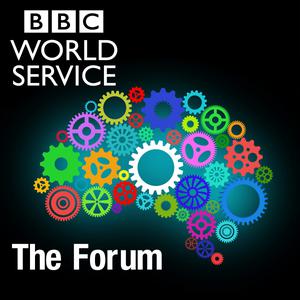
The Forum
BBC
The programme that explains the present by exploring the past.
- 49 minutes 26 secondsFeeding the world and the Green Revolution
In February 2024, the renowned Indian geneticist Dr. MS Swaminathan was posthumously awarded the country’s highest civilian honour, the Bharat Ratna. This was in recognition of the dramatic increase in the yields of food staples, such as rice and wheat, that Indian agriculture experienced under his stewardship of the ‘green revolution’ in the 20th century. That revolution is credited with saving many people from hunger and malnutrition across Asia and Latin America. And yet, half-a-century on farmers’ incomes in Africa, Asia and Europe are falling and in many countries farmers are on the streets protesting. At the same time, the environmental impacts of intensive food production are becoming increasingly clear. So do we need a new ‘green revolution’? And is the use of the latest agricultural technology, from robots to AI the answer?
Rajan Datar discusses the past and present of food growing with Professor of Economics Douglas Gollin, crop scientist Professor Nigel Halford, historian of science Dr. Madhumita Saha, robotics project manager Andreas Hofland and listeners from around the world.
(Photo: Green ear of wheat. Credit: binabina/iStock/Getty Images Plus)
20 April 2024, 6:06 am - 48 minutes 52 secondsEtiquette
‘Always pass the salt and pepper together, even if your fellow diner has asked just for one of them’. That’s the standard advice given by countless dining etiquette manuals, one of the many rules regarding proper manners that have been handed down from generation to generation. But what if some of the rules have become outdated, silly or just wrong? And why do we have etiquette in the first place? Where do the rules of polite conduct come from and are they the same the world over?
Iszi Lawrence follows the story of etiquette across time and over several continents with the help of Annick Paternoster, Lecturer at the University of Lugano in Switzerland who has a special interest in the history of politeness; Professor Daniel Kadar from Dalian University of Foreign Languages in China, the HUN-REN Hungarian Research Centre for Linguistics, and the University of Maribor in Slovenia; Courtney Traub, author and editor of the travel website Paris Unlocked; Japanese writer and cultural commentator Manami Okazaki; former Chief of Protocol at the Foreign Ministry of Grenada Alice Thomas-Roberts; and Forum listeners from around the world.
(Photo: Business people shake hands. Credit: iStock/Getty Images Plus)
16 March 2024, 7:06 am - 48 minutes 42 secondsSupermarkets
Supermarkets: they are ubiquitous yet hard to define, lauded and vilified in roughly equal measures, and in many countries they have a huge influence on what we eat. Technological innovations, big social changes and new shopping habits have all shaped their development and today’s megastores are a far cry from their small-scale ancestors of the 1930s. And yet, some quirks of supermarket design remain constant: for instance, why are the eggs always so hard to locate in the stores?
Iszi Lawrence navigates supermarket aisles with the help of historian and economist Marc Levinson; Aarti Krishnan, Lecturer in Sustainability at Manchester University; Simona Botti, professor of marketing at London Business School and Forum listeners from around the world.
(Photo: A customer in a supermarket. Credit: Adene Sanchez/ Getty Images)
17 February 2024, 7:06 am - 48 minutes 51 secondsDiplomacy
In the 1990s, an advert for a brand of chocolate depicted a sophisticated gathering hosted by the foreign ambassador of an unspecified country. It hinted at a gilded existence of cocktail parties and small talk among influential, wealthy guests. Iszi Lawrence finds out how the stereotype of the diplomatic world compares with the reality of international relations. Who does the real work behind the scenes and who has the power? When we see powerful leaders on the world stage shaking hands and signing treaties, what has led up to that moment?
Iszi discusses first hand experiences of the diplomatic world with the American diplomat Maryum Saifee and the former High Commissioner of Maldives to the UK, Farah Faizal. They are joined by Dr. Lorena de Vita, a historian of diplomatic relations to explain how their work impacts all of us. Plus World Service listeners from across the globe share their thoughts on what diplomats actually do.
Produced by Fiona Clampin for the BBC World Service.
20 January 2024, 7:06 am - 48 minutes 32 secondsThe story of throwaway living
The humble plastic bag is actually a marvel of engineering: it is cheap, light, strong, waterproof and it has conquered the world. In countries where plastic bags have been banned, they are still being smuggled in. The environmental pollution and other problems that discarded plastic can cause has made it a focus of passionate debate. But is plastic really the problem or is it our increasing use of disposable and single-use items? The popularity of disposable products predates the invention of the plastic bag in the 1960s or even the advent of Western consumer society in the aftermath of the Second World War. And in the last three decades, so many new single-use items have been produced that we increasingly cannot imagine our lives without them, and not just in the festive season. So what is the way forward?
Iszi Lawrence talks about all manner of disposable and single-use objects with Jennifer Argo, Professor of Marketing at the School of Business, Alberta University; Mark Miodownik, Professor of Materials & Society at University College London; Katherine Grier, Professor Emerita of History at the University of Delaware and founder of the online Museum of Disposability; space archaeologist Dr. Alice Gorman from Flinders University in Australia and listeners from around the world.
(Photo: Digital image of plastic waste and a city skyline. Credit: Andriy Onufriyenko/Getty Images)
16 December 2023, 7:06 am - 48 minutes 39 secondsPolitical parties and us
Political parties come in all shapes and sizes and their ideas are just as varied. But what kind of parties best reflect 21st-century society? How do we, as voters, choose between them at elections? What are their ever-increasing expenses spent on? And - perhaps most importantly - how well do political parties respond to the needs and views of the public?
Iszi Lawrence discusses these questions with Professor Leonie Huddy from Stony Brook University who studies the psychology of politics, Associate Professor Karina Kosiara-Pedersen who researches party membership at the University of Copenhagen, Professor Paula Muñoz Chirinos who works on political finance at the University of the Pacific in Peru, Catherine Mayer co-founder of the Women's Equality Party in the UK, as well as student Luke Louis Ow from Singapore and other listeners from around the globe.
(Photo: A sign in Dublin directing voters where to go in 2021. Credit: Artur Widak/Getty Images)
18 November 2023, 7:06 am - 48 minutes 39 secondsWhat makes a good boss?
We can probably all think of examples of bad bosses – the people who we love to gossip about with our colleagues outside work. And even if you’re lucky enough to have had good experiences of management, you may be familiar with bad bosses from popular culture. But what makes a good manager and how can you inspire people in the workplace?
It’s a question that’s been debated since the Industrial Revolution when rapidly expanding companies needed a way of controlling their workers. From there developed various theories of management, some of which drew on aspects of sociology and psychology.
Rajan Datar is joined by Ann Francke, the chief executive of the Chartered Management Institute in the UK; Monica Musonda, the CEO of Java Foods in Zambia; and Todd Bridgman, Professor of Management Studies and Head of the School of Management at Victoria University of Wellington / Te Herenga Waka in New Zealand. We’ll also present a selection of comments and experiences sent in by Forum listeners.
Produced by Fiona Clampin
(Photo credit: Getty/Luis Alvarez)
21 October 2023, 6:06 am - 48 minutes 18 secondsThe joy and sorrow of roads
Whether we are pedestrians, cyclists or drivers, roads play a crucial role in our everyday lives. But where and how should we build any new ones? What kind of roads do we need? And how did we end up with the ones we have?
Rajan Datar talks about the past and present of roads and roadbuilding with anthropologist Traci Ardren from the University of Miami, civil engineer Kate Castle, historians Alexis DeGreiff from the National University of Colombia in Bogota and Aparajita Mukhopadhyay from Kent University, literary scholar Stephanie Ponsavady from Wesleyan University in Connecticut and journalist Karim Waheed from Dhaka. Plus World Service listeners from around the globe share their road-trip joys and frustrations.
(Photo: Road construction, worker with a shovel. Credit: blyjak/Getty Images)
16 September 2023, 6:06 am - 48 minutes 41 secondsPets and us
For every young American under the age of 18, there are about two cats or dogs receiving free food and lodgings in US homes and that pattern is replicated in many other countries. So why do so many of us keep pets? Why do we name them, consider them part of the family? Companionship, pleasure, status symbol and kinship with all life have been offered as explanations but it's easy to forget that mass keeping of pets - as opposed to working animals - is a recent development of the last two centuries or so.
Iszi Lawrence talks about our evolving relationship with pets with Dr. Anindita Bhadra from the Dog Lab at the Indian Institutes of Science Education and Research in Kolkata; Dr. Erin Hecht, evolutionary biologist from Harvard; Dr. Margo DeMello, anthrozoologist from Carroll College in Montana; writer and cultural commentator from Japan Manami Okazaki; Durham University historian Professor Julie-Marie Strange; and Rachel Williams, neuroscientist at UCL and comedian. We also sift through the dozens of comments and pet stories sent in by Forum listeners.
(Photo: A young woman with her pet dog. Credit: Luis Alvarez/Getty Images)
19 August 2023, 6:06 am - 49 minutes 22 secondsThe evolution of teenagers
In some ways the 21st century is a very unusual time when it comes to adolescence - a study in the US found that teenagers smoke less, drink less and have less sex than the previous generation. And worldwide young people are coming of age in a digital era, with the dangers and opportunities that represents. Our expectations of teenagers vary hugely depending on the social, historical and cultural context. Paleoanthropologist Ella Al-Shamahi takes us through the big evolutionary questions about adolescence: Why do humans go through this developmental stage? What's the point of all that teenage angst? And how come every generation stubbornly repeats the same mistakes?
She is joined by a panel of experts:
Laurence Steinberg is one of the world's leading experts on adolescence. He is Professor of Psychology and Neuroscience at Temple University in Philadelphia, USA. His latest book is called, 'You and Your Adult Child'.
Emily Emmott is a lecturer in biological anthropology at University College London. She's currently researching the implications of the social environment around us during our teenage years.
Jon Savage is a British writer and music journalist, best known for his history of the Sex Pistols and punk music. He's the author of 'Teenage: The Creation of Youth Culture'.
Brenna Hassett is a bioarchaeologist at University College London and the author of 'Growing Up Human: The Evolution of Childhood'.
Presented by Ella Al-Shamahi Produced by Jo Impey
Image: Teenagers dance the twist around a radio cassette recorder in a street in the Harajuku district of Shibuya, Tokyo, Japan, 1978 (Photo by Keystone/Hulton Archive/Getty Images)
15 July 2023, 8:00 am - 49 minutes 37 secondsGlobal mass tourism
From Bhutan to The Bahamas and Iceland to Indonesia, mass tourism has grown at an unprecedented rate over the last few decades. Today’s top destinations are struggling with the sheer numbers of visitors and the United Nations has called for a total rethink on how the industry operates.
The origins of travel for pleasure go back centuries and package holidays in the 1960s made it accessible to many in the West but it’s only the combination of cheap flights and the advent of the internet that has led to truly global tourism on a mass scale. Whilst the industry now generates huge income for many companies and individuals around the globe, critics point to the cost to both the environment and humankind.
Drawing on listeners’ questions and comments, Rajan Datar examines the way mass tourism has impacted people’s lives, both positively and negatively, and asks if the enforced pause in tourism caused by Covid was utilised as an opportunity for a re-think. He is joined by Sihle Khumalo, a popular South African travel writer; Shazia Mirza, a renowned British comedienne and writer; Qupanuk Olsen, originally a mining engineer but now Greenland’s leading travel influencer; Prof. Noel Salazar, anthropologist of tourism from KU Leuven in Belgium; Iñigo Sánchez-Fuarros, senior researcher at the Institute of Heritage Sciences of the Spanish National Research Council and Dr. Birgit Trauer, tourism consultant and educator from Australia.
[Photo: El Postiguet Beach in Alicante, Spain in the summer of 2022. Credit: Marcos del Mazo/LightRocket via Getty Images.]
17 June 2023, 6:06 am - More Episodes? Get the App
Your feedback is valuable to us. Should you encounter any bugs, glitches, lack of functionality or other problems, please email us on [email protected] or join Moon.FM Telegram Group where you can talk directly to the dev team who are happy to answer any queries.
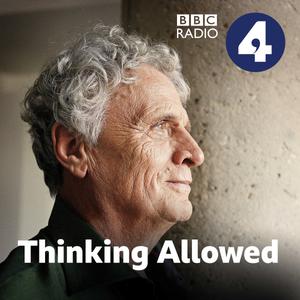 Thinking Allowed
Thinking Allowed
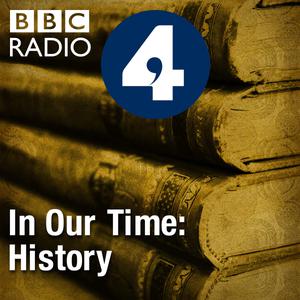 In Our Time: History
In Our Time: History
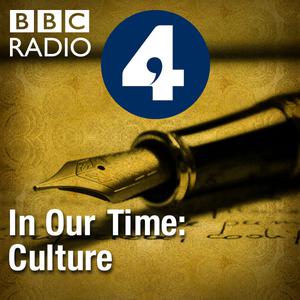 In Our Time: Culture
In Our Time: Culture
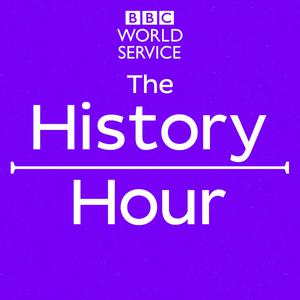 The History Hour
The History Hour
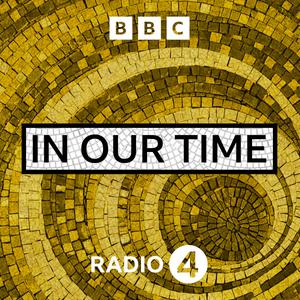 In Our Time
In Our Time
 The Inquiry
The Inquiry